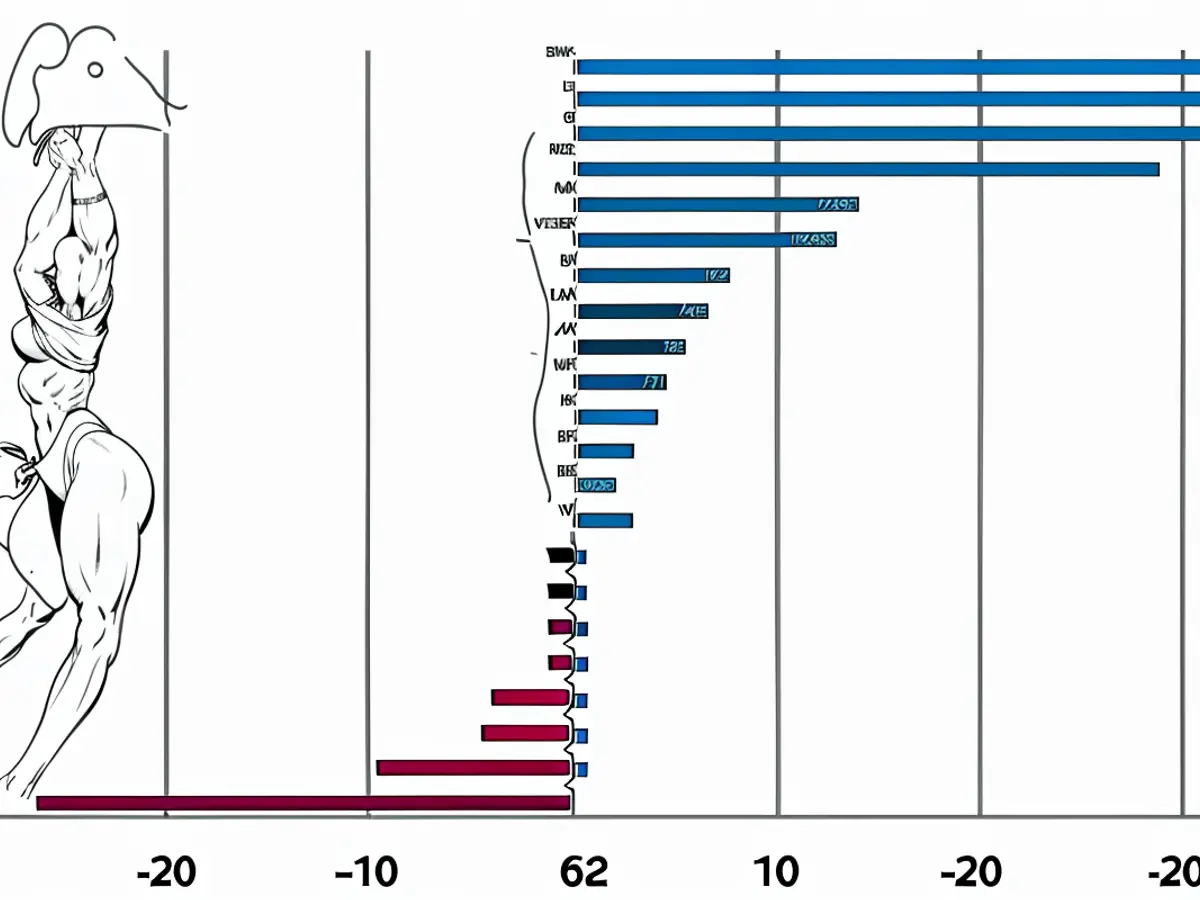The Surge of Gold Prices Reaching Unprecedented Peaks
The price of gold is surging at an unprecedented rate, surpassing the 2700-dollar mark for the first time. With an ounce briefly reaching 2712 dollars, experts are asking how high it will go. NTV.de speaks to Marco Herrmann from asset manager Fiduka about the factors driving this trend and how the US elections could influence the price.
Gold has seen a remarkable surge in demand over the past year, with an ounce selling for less than 2000 US dollars just 12 months ago. The reasons for this increase in demand, which is pushing prices up, are numerous. The global financial markets are plagued with risks and uncertainties, from heightening geopolitical tensions to soaring government debts. Gold, often seen as a "safe haven," has significantly benefited from this situation. And there are strong indications that the price rally has more room to grow, as Herrmann from Fiduka reveals in an interview with ntv.de.
Central banks have been the main drivers of the price rally. In search of a secure investment during turbulent times, this group of buyers has "aggressively and consistently bought and accumulated gold" over the past two years, Herrmann explains. The World Gold Council reported that central banks purchased 483 tons of gold in the first half of the year - the largest amount ever recorded by the lobby organization. This rally, according to the expert, began in 2022 when Russia invaded Ukraine. At that time, Western countries froze Moscow's foreign currency reserves. Countries sympathetic to Putin - including China - feared their assets might also be frozen. As a result, their central banks transformed substantial amounts of US government bonds into physical gold.
Physical gold held in vaults offered these countries a sense of security for their trade surpluses in the form of gold bars, simultaneously making them less reliant on the US dollar, the world's leading currency. "Interestingly, we had high inflation and rising interest rates at the beginning of 2022 when the conflict began," says Herrmann. "This was not a favorable environment for gold." However, the preference was for safety over returns. As central banks lower interest rates again, interest-bearing securities become less attractive. "In my opinion, this trend will continue to fuel gold's growth," says Herrmann, the commodity expert.
Presently, the focus is on escalating global debt mountains and the uncertain outcome of the upcoming US presidential election. The uncertainty surrounding the future US leader - Democratic candidate Kamala Harris or Republican challenger Donald Trump - seems to be giving the gold price an extra boost. The US is the world's most indebted country, and financial experts predict its debt to reach around 35.5 trillion dollars by 2024.

The US isn't alone in this. Countries worldwide are living beyond their means. Since the commencement of money, excessive government debt has frequently triggered higher inflation rates. Populations recognized that uncontrolled printing of money to finance the state would debase the value of money. The wealthy fled to more valuable assets or other currencies, causing further devaluation of the domestic currency. "It's quite possible that history will repeat itself," warns Herrmann.
Global public debt is projected to surpass 100 trillion dollars for the first time this year, according to the International Monetary Fund (IMF). By the end of the year, the debt-to-GDP ratio will reach 93 percent, and it is expected to approach 100 percent by 2030. In 2019, before the pandemic, the debt-to-GDP ratio was 90 percent. "At this juncture, we hit a 'no-return' point when it comes to debt," warns Herrmann.
Germany isn't an exception, and its relatively low official debt of 2.5 trillion euros doesn't tell the whole truth. "The green transformation, restructuring of the economy, and becoming more sustainable require money and investments. And we face a demographic problem. Repairing the budget is politically unfeasible; we'd rather run into the wall with our eyes open," says Herrmann. Since the financial crisis, plus the pandemic, state debts have been rising, with debt-financed growth and debt-financed redistribution as the only options.
If Kamala Harris wins the presidency, Herrmann anticipates an even stronger gold price surge. Don Trump's potential refusal to accept defeat could lead to chaotic days in the USA, fueling uncertainty and benefiting gold. However, if Trump wins, Herrmann foresees two scenarios for the gold price: a rising or falling one. If Trump increases spending or lowers taxes, potentially leading to more debt, the US Federal Reserve might hold back on further interest rate cuts, which could temporarily curb the gold price.

On a different note, prolonged aspects might push the gold price upwards, according to Herrmann. He explains, "The mounting debt levels, escalating geopolitical conflicts, and an increasing number of dictators preparing for war make gold more and more appealing." The 3000-dollar threshold is simply a "midpoint in our ascent." Germany's economist, Jens Baader, once accurately labeled gold as 'condensed skepticism,' and currently, this sentiment is at its peak.
Herrmann also believes that gold prices could climb further due to a few reasons. Namely, gold reserves in ETFs have been decreasing over the past three years, with investor interest remaining low. Nevertheless, there's been a minor uptick in interest recently, potentially opening the door for a new group of buyers besides central banks.
As for personal investors, small-scale investments may still be feasible, but larger ones should pause and wait for downturns, suggests Herrmann. Those who wish to invest should opt for gold-backed ETFs like Xetra-Gold or Euwax Gold II rather than physical gold. This approach is more secure, enables smoother transactions, and charges lesser fees.
In this context, the rising inflation rates could further boost the price of gold, as individuals and institutions seek safer investment options to protect their wealth. The high global public debt, projected to surpass 100 trillion dollars this year, along with the uncertain outcome of the US presidential election, contributes to a volatile financial market, which often drives investors towards gold as a safe-haven asset.









